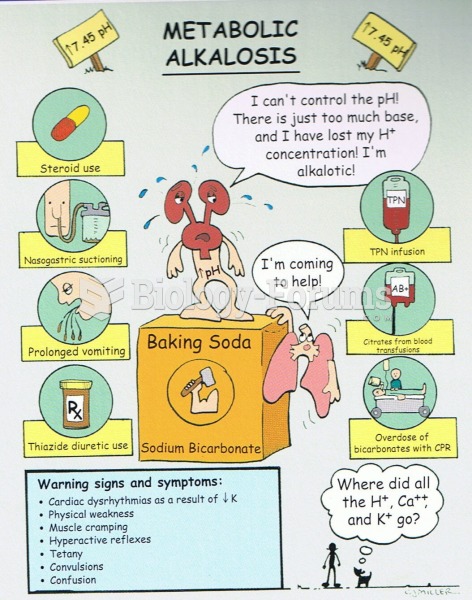|
|
|
Vampire bats have a natural anticoagulant in their saliva that permits continuous bleeding after they painlessly open a wound with their incisors. This capillary blood does not cause any significant blood loss to their victims.
Lower drug doses for elderly patients should be used first, with titrations of the dose as tolerated to prevent unwanted drug-related pharmacodynamic effects.
Your heart beats over 36 million times a year.
The Centers for Disease Control and Prevention (CDC) was originally known as the Communicable Disease Center, which was formed to fight malaria. It was originally headquartered in Atlanta, Georgia, since the Southern states faced the worst threat from malaria.
As many as 20% of Americans have been infected by the fungus known as Histoplasmosis. While most people are asymptomatic or only have slight symptoms, infection can progress to a rapid and potentially fatal superinfection.
 To measure engine oil pressure, remove the oil pressure sending (sender) unit usually located near ...
To measure engine oil pressure, remove the oil pressure sending (sender) unit usually located near ...
 Circular friction around the ankle with the fingertips. Applying pressure with the fingertips, move ...
Circular friction around the ankle with the fingertips. Applying pressure with the fingertips, move ...





